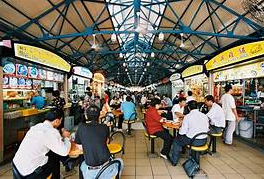Senior Minister Koh Poh Koon warns that certain changes to the hawker stall rent system could inadvertently result in higher rents, despite efforts to reduce costs for hawkers.
SINGAPORE – Senior Minister of State for Sustainability and the Environment, Koh Poh Koon, has expressed concerns that proposals from opposition MPs to adjust the hawker stall rental system could lead to higher rents instead of alleviating cost pressures for hawkers. In a debate in Parliament on November 13, 2024, Koh emphasized that the solutions being proposed might exacerbate the situation rather than resolve it.
Opposition MPs Leong Mun Wai and Hazel Poa of the Progress Singapore Party had put forward several suggestions to modify the current tender system for hawker stall allocation. Their aim was to ease the financial burden on hawkers, particularly with rising operational costs, and to ensure the affordability of hawker food for consumers. However, Koh cautioned that changes like moving away from the tender system or altering the way rents are determined might have unintended consequences.
Food Ingredient Costs Remain the Major Factor
During the debate, Koh pointed out that rental costs make up a smaller portion of overall operating costs for hawkers compared to food ingredients. According to a National Environment Agency (NEA) survey in 2023, the cost of food ingredients accounts for nearly 60 percent of operating costs on average. Manpower costs represent about 20 percent, while rental costs amount to less than 10 percent.
Despite the relatively low proportion of rent in overall costs, Koh explained that hawker stall rents remain significantly lower than those at other nearby eating establishments, such as food courts and small eateries. For instance, the median rent for a majority of cooked food stalls in hawker centres is about $1,250 a month, a figure that has remained stable over the past decade.
Government’s Approach to Stall Rent and Tendering System
Koh highlighted that the government does not use stall rent as a revenue-generating tool but instead allows rent to be determined by the bidding process. This system has enabled many hawkers to secure stalls at relatively low rental rates, with some stalls being bid for as low as $1 in recent years.
The government has also made adjustments to improve the system, such as disallowing subletting of stalls in 2012 to prevent price hikes, and introducing longer periods for adjusting rental rates downward after a tender bid. These changes aim to discourage overbidding and ensure more realistic rent amounts.
Proposals for Change and Their Potential Impact
Several opposition MPs suggested changes to the current system, such as replacing the tender process with a fixed rent or introducing a random ballot system for stall allocation. However, Koh expressed concerns that these changes might lead to higher rents overall. For example, a fixed-rent system based on gross turnover would require extensive tracking and could result in higher rent for many hawkers, especially those who currently benefit from lower bids.
Koh also discussed the possibility of introducing a rental cap, a proposal raised by Workers’ Party MP Louis Chua. While a cap would provide a ceiling for rental prices, Koh warned that it could lead to more competitive bidding towards the maximum cap, driving rents higher rather than making them more affordable.
Challenges Beyond Rent
Koh reinforced the point that rent is not the main challenge faced by hawkers. The most critical factors for hawkers are customer footfall and the ability to maintain fair pricing, ensuring a decent profit margin. Even if rents were eliminated, a lack of customers would render the stall unprofitable. Koh acknowledged that the government will continue to refine the system, incorporating feedback from hawkers and MPs to strike the right balance between affordability and sustainability for hawkers.
In response to the calls for reforms, Koh assured the public that while no system is perfect, the government will continue working on improving the current tender system to better support hawkers and ensure Singaporeans can enjoy affordable hawker food for years to come.


